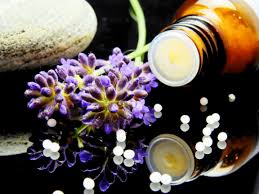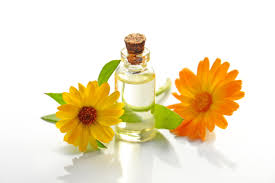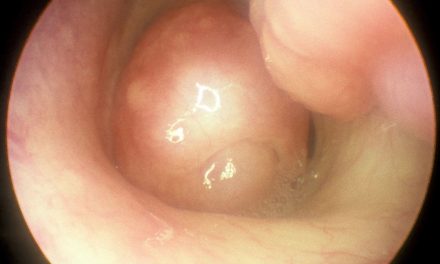By Eli G. Jones, M.D., 1404 Main St., Buffalo, N. Y.

A professor in a medical college, in teaching materia medica, speaks of a remedy from his own viewpoint, or that of the school of medicine with which he is identified. In other words, he tells only a part and oftentimes a very small part, of what a remedy will really do for the sick. From this it will be seen that to know materia medica is to know all about what a remedy will do for sick people we must study the materia medica of all schools of medicine. Then we know the true indication of each remedy and just what we can do with it in our battle with disease. The very first thing that I try to impress upon the minds of my students is the importance of ridding their minds of all prejudice against any school of medicine, but have an open mind, ready to seek the truth, no matter where the quest may lead them. I often use this illustration in teaching materia medica, “Now suppose that I should take you out in a beautiful garden, and show you all the beautiful trees, plants and flowers gathered from every nation, would you be catisfied to pluck the first pretty flower that came to your notice? It seems to me it would be more natural that you should gather a bouquet of all the most beautiful flowers in the garden.” “I take you out in the garden of medical knowledge, I show you all the most useful remedies, I teach you the true indications for each remedy, and how and when to use them in healing the sick.” That, dear reader, is what I mean by teaching materia medica. In all my writing I have been careful and conscientious about the statements I make about a remedy, unless it had been tried out by myself by actual clinical experience, and not by “hearsay evidence.”
Many of these remedies have been tested upon myself in health to find out definitely what they would do in disease conditions. In this way I have built up a materia medica of tried remedies, and when I tell a brother physician that a remedy will do a certain thin, he has learned to depend upon what I say. I absolutely believe in the remedial power of remedies to heal the sick just as much as I believe in an over-ruling Providence. My belief in my remedies is a part of my religion. Any physician who has no faith in the remedial power of drugs to heal the sick has no business in the profession. If he holds himself out to the public as a physician, he is “obtaining money under false pretenses!” To stem the tide of medical nihilism and Drugless Healing in this country we must show the people that we have absolute faith in our remedies to heal the sick. That we are fitted so treat successfully the diseases common to our country. The early fathers of me new school taught their students absolute confidence in their remedies. They went out from the medical college with a fixed belief in their remedies. They had perfect confidence in themselves, because they had been taught a difinite treatment for the diseases they would meet in every day practice. As a result of such teachings they grew and prospered. Their success in healing the sick is today a matter of medical history. Their colleges sprang up all over out country and students flocked to them from all parts of the U.S. The new school was then at the “flood-tide” of their prosperity. Then there came a time when they began to retrograde. Many of the diseases that their fathers cured they failed to cure. They were not having as good success in treating the sick as the early fathers did. This condition was soon manifest in the college of the Eclectic, as well as the Physio-Medical and Homoeopathic schools of medicine. Thus we find that instead of being able to master the disease common to our country, in 60 per cent. Of the diseases common to our country the mortality was increasing. In our failure to cure the diseases common to our country the drugless healers have grown by leaps and bounds! What is the remedy? It is simply this; we must revise our system of teaching in the medical colleges of all schools. We send out students loaded down with technical knowledge of their profession, but they lack the most important thing of all. They are not fitted to heal the sick. They cannot cure the diseases common to our country. There are 20,000,000 of our people suffering from some form of chronic disease. Our medical student turned out from a medical college cannot cure them for the simple reason that he has not been taught how to cure them. There are 225,000 people in the U.S. suffering from cancer and 75,000 victims of cancer die each year in this country. The medical students turned out from our medical college ought to know how to treat this disease, but they don’t; for the professors can’t teach students what they don’t know themselves!
A Professor, when he signs a student’s diploma, certifies to the fact that he believes that the student is qualified to practice medicine, BUT IS HE? That is a serious question for our medical colleges to answer. If the student can’t cure the diseases common to our country, can you honestly say that you “think he is qualified to practice medicine?” Remember that it is the business of the physician to heal the sick and it is his duty, as a physician, to fit himself for the business of treating sick people. Copying your lectures out of a medical book and reading from the manuscript to the medical students is not lecturing. It is not teaching medicine. Any person with ordinary intelligence could do all that. A Professor in a medical college should be able to stand up before a class of students and tell them what he knows about the subject by actual clinical experience in everyday practice. In teaching my students I never use manuscript or notes. I want to look the student right in eyes. I want to talk to the man himself and when I get through he will remember what I tell him. The system of teaching medical students will have to be revised in all our medical colleges if we really mean to turn out student fitted to heal the sick.
I have a better opportunity for knowing the weak points of the doctors of all schools of medicine:
First – Because I have in my life time met physicians of different schools of medicine in consultation in forty States of the Union.
Second – I have written articles for our health journals. I know the needs of the people. I know what the doctors are not doing for the public.
Third – I have been teaching physicians how to heal the sick for twenty-five years.
Fourth – My correspondence for many years with physicians of all schools of medicine from all parts of the U.S. has given me a very clear understanding of what our physicians are not doing for the sick.
While I live and God gives me strength to do it, I shall do what I can to help our doctors to do more for the sick than they are doing. To be better physicians. When my work is done, may some man be raised up to do this work for the profession and do it much better than I have done. Meanwhile the men whom I have helped to be better physicians will not forget the man who has not only been a teacher, but more than that, a father to them. May God bless you and help you to do your whole duty by your patients. Every cure that you make binds the people more closely to you every cure that you make is a standing advertisement of your success in healing the sick. Remember that “What man has done, man may do.” When a therapeutic fact is in your head, it is yours, but if it is in the books it is not! The other man has made his reputation (be it good or bad), but you have got yours to make, and it must be made upon the cures that you make, not upon your failures. The undertaker reaps the reward of your failures!
God helps the man who helps himself, when we give what we believe to be the indicated remedy. The remedy we honestly believe is needed for our patient, then we can with perfect faith in the Great Physician ask His blessing on the remedies we prescribe for our patient, and we will get good results from our treatment. Napoleon used to say, “That the Almighty was on the side of the heaviest artillery.” We have the heaviets artillery when we give the remedy that is indicated in that particular case.
What I have written is a “heart to heart” talk with my readers, founded on an experience and observation of forty-seven years in the medical profession. It is an honest opinion of one who loves his profession and from one who loves his fellowmen. From a man so broad minded and big hearted, that he can recognize all physicians as brothers and extends to them the right hand of fellowship. For me there is no “line of demarcation,” no walls of mystery, but I see a grand profession united in one great body of noble men, with one object in view, to find the best, the most definite means of healing the sick.
Several years ago I had an invitation to deliver an address before the “National Association for Suggestive Therapeutics,” at Nevada Missouri. Very many of the “bright lights” of the literary world were to be present. All my expenses were to be paid on the trip. The social feature of the meeting appealed to me very strongly, but I could not see the sense of my delivering and address on medicine before a body of men and women who had so faith in medicine.
Uring the past year I was offered the appointment of Consulting Physician to a large Chiropractic Hospital in New jersey, but I declined the appointment, for I felt that I could not identify myself with a system of therapeutics that discarded drugs in their treatment of the sick. I never argue with these drugless healers I tell them that “they have as much right to their opinion as I have to mine.” Every form of healing, whether with drugs or without, must be tried our before the public. They sit as a jury, and they will sift the evidence, and when they do render a verdict, you can depend upon it that it will be a righteous one. May God help the medical profession in this country when that verdict is returned. For they will see the handwriting on the wall, “Thou hast been weighed in the balance and found wanting.”




